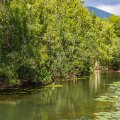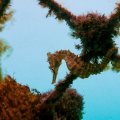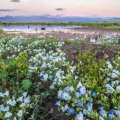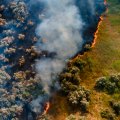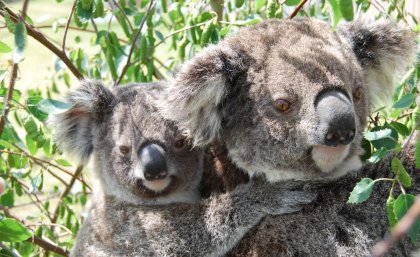
Today is World Wildlife Day.
UQ experts available for comment for World Wildlife Day:
Journalists are welcome to contact experts listed below directly for interviews and comment. Mobile phone numbers available on request.
Dr Hosking’s research indicates the top-ranked priority areas for conservation across eastern states, based on predictions of where both koalas and suitable vegetation will be most likely to persist.
Contact: 07 3443 3113, c.hosking@uq.edu.au
Contact: 07 3365 6620, c.mcalpine@uq.edu.au
Dr Ellis's research addresses the ecological dilemmas faced by koalas and land managers attending to their requirements, from issues of competing habitat utilisation to climate variability and resource extraction. He is investigating mechanisms of sexual selection and regulators of population dynamics among koala populations across Queensland.
Contact: 07 3365 1670, w.ellis@uq.edu.au
Dr Ridgway manages the Healthy Oceans Program at the Global Change Institute. Dr Ridgway moved to Australia from South Africa to undertake a PhD in Marine Science at UQ on connectivity of coral reefs. Dr Ridgway also worked at the Great Barrier Reef Marine Park Authority (GBRMPA). At GBRMPA, Dr Ridgway was involved in the project management of the Climate Change Action Plan as well as overseeing the Reef Health Impact Survey and BleachWatch programs.
Contact: 07 3344 3147, t.ridgway1@uq.edu.au
Professor Hoegh-Guldberg is deeply-motivated by a desire to communicate science effectively, undertake game-changing research and to find high-impact solutions to address several of the most pressing and serious challenges facing humanity worldwide, such as climate change, food security, clean energy and population growth.
Contact: 07 3443 3111, oveh@uq.edu.au
Mr Cook is the Climate Communication Fellow for the Global Change Institute. He created the website SkepticalScience.com, which won the 2011 Australian Museum Eureka Prize for the Advancement of Climate Change Knowledge. John co-authored the college textbook Climate Change Science: A Modern Synthesis and the book Climate Change Denial: Heads in the Sand. His writing was included in The Best Australian Science Writing 2014, a collection of Australia’s finest science writing of the year.
Contact: 07 3443 3108, j.cook3@uq.edu.au
Media: UQ Communications, Caroline Bird, c.bird1@uq.edu.au or 07 3365 1130
.jpg)

